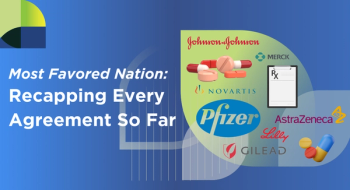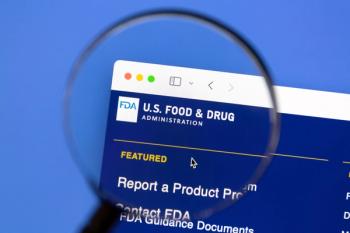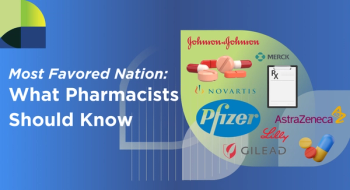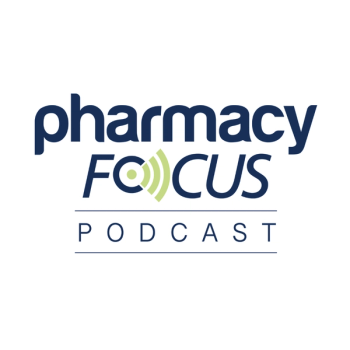
Dato-DXd is a promising first-line treatment for metastatic triple-negative breast cancer, enhancing patient outcomes.

Dato-DXd is a promising first-line treatment for metastatic triple-negative breast cancer, enhancing patient outcomes.

Explore all 16 agreements struck thus far between pharmaceutical companies and the White House to adhere to most favored nation pricing for drugs sold in the United States.

KTX-1001, a novel oral inhibitor of NSD2, demonstrates early clinical activity and manageable safety in heavily pretreated multiple myeloma.

Pharmacists guide consumers in selecting quality dietary supplements, emphasizing the importance of USP verification for safety and efficacy.

Experts discuss groundbreaking data on pancreatic cancer treatment, revealing a 64% survival rate and its potential to transform patient care and outcomes.


Treatment with semaglutide offers benefits beyond solely cardiovascular risk reduction, lowering the risk of hospitalization across a range of comorbidities.

Pharmacists play a critical role in improving access to and affordability of GLP-1 therapies.

Innovative biodegradable nanoplatforms enhance cancer therapy by integrating targeted drug delivery and real-time imaging, revolutionizing oncology practices for pharmacists.


The FDA cited human factors unrelated to the drug's efficacy as the reason for rejection.

Multidisciplinary coordination and streamlined workflows enabled rapid patient access to plozasiran after FDA approval at Stony Brook University Hospital.

Pharmacists are transforming patient care in 2026, enhancing clinical outcomes through innovative practices and expanded responsibilities in health systems.

Exclusive insights from Ned Milenkovich, PharmD, JD, help parse what pharmacists should be aware of as most favored nation initiatives are agreed upon with the federal government.

Pharmacists play a vital role in managing multiple sclerosis treatments, enhancing patient care through clinical trials and personalized therapy options.

Zavabresib receives orphan drug designation for myelofibrosis, offering hope for patients unresponsive to current treatments and enhancing therapeutic options.

Pharmacists should know about migraine treatments, such as lasmiditan, to effectively treat and educate patients with acute migraine.

The authors suggested that future research investigate emerging blood-based biomarkers and explore temporal associations between sleep duration and Alzheimer disease biomarker changes.

Research reveals that patients with asthma who experience symptoms of depression show elevated BDNF levels, suggesting unique biological links between asthma severity and depressive symptoms.


On Chen, MD; and Tahmid Rahman, MD, join Pharmacy Focus to discuss the world's first commercial administration of plozasiran at Stony Brook Medicine.

RegeneCyte's HPC therapy shows promise in treating long COVID symptoms, with 85% of patients reporting fatigue relief.

The FDA prioritizes centanafadine's review for ADHD treatment, offering a novel, once-daily oral option for diverse patient needs.

The FDA approved the first dual-agent eye drops for presbyopia, offering a groundbreaking solution for age-related near vision loss.

Processed plant-based foods, such as breads and cereals, can reduce the risk of diabetes and heart failure when they replace ultraprocessed meats or sugary beverages.

Research data show that weight regain after discontinuation of GLP-1 or GLP-1/GIP agonists is a significant risk.

Discover groundbreaking FDA-approved treatments, including at-home depression therapy, new biosimilars, and culturally relevant pain relief options.

Atebimetinib shows promise in enhancing pancreatic cancer treatment, achieving a 64% survival rate and improving patient quality of life.

Shawn Riser Taylor, PharmD, CPP, CDCES, reflects on a research career shaped by a commitment to patient-driven inquiry and a passion for collaborative, learner-engaged projects.

Multidisciplinary coordination and streamlined workflows enabled rapid patient access to plozasiran after FDA approval at Stony Brook University Hospital.